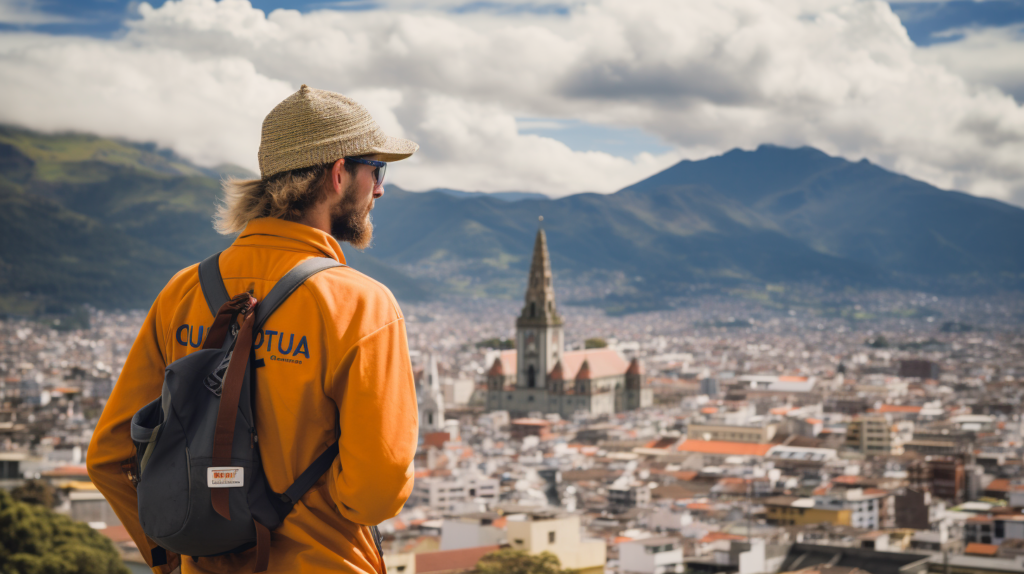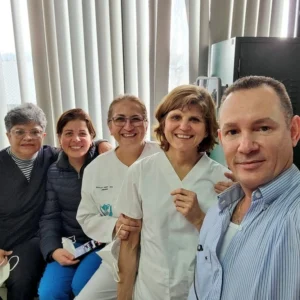Welcome to Ecuador, a country of diverse landscapes, rich cultural heritage, and a vibrant volunteer community. If you’re considering volunteering abroad in Ecuador, then Quito is the place to be. This detailed guide will provide you with all the essential information you need to know before embarking on your volunteer journey in Quito, including understanding the country and city, available volunteer opportunities, preparation, daily life as a volunteer, and much more.
Volunteering abroad is not only a meaningful way to give back to a community in need but also an incredible opportunity to immerse yourself in a new culture, gain valuable life experiences, and make lifelong connections. Ecuador, with its stunning landscapes, friendly locals, and countless opportunities to make a difference, is the perfect destination for volunteers seeking a unique and impactful experience.

Whether you’re passionate about education, healthcare, environmental conservation, or community development, Quito offers a wide range of volunteer opportunities that cater to various interests and skill sets. From teaching English to children in underserved communities to providing healthcare assistance to those in need, there’s a volunteering role for everyone in this enchanting city.
But before you pack your bags and jet off to Quito, it’s important to be well-prepared and informed. In the sections that follow, we’ll delve deeper into the geographical and cultural aspects of Ecuador and Quito, explore the available volunteer opportunities, provide tips for preparing for your volunteer experience, guide you through your arrival in Quito, and offer insights into daily life as a volunteer. By the time you finish reading this guide, you’ll be equipped with all the knowledge you need to make the most out of your volunteer journey in Quito.
So, let’s dive in and discover all that Volunteer Abroad Ecuador Quito has to offer!
Understanding Ecuador and Quito
Geographical Overview
Ecuador, located on the west coast of South America, is a country known for its incredible natural beauty and cultural heritage. Quito, the capital city of Ecuador, is situated high in the Andes Mountains and is surrounded by stunning landscapes including volcanoes, lush forests, and the famous Galapagos Islands.
- Andes Mountains – Quito is nestled in the Andes Mountains at an elevation of around 2,800 meters (9,350 feet) above sea level. This high-altitude location gives the city a unique climate and breathtaking views.
- Galapagos Islands – Ecuador includes the Galapagos Islands, a UNESCO World Heritage site and a must-visit destination for nature lovers. These islands are known for their diverse ecosystem and unique wildlife, including giant tortoises and marine iguanas.
- Amazon Rainforest – The Amazon Rainforest covers a significant part of Ecuador’s eastern region. This bio-diverse area is home to indigenous communities and abundant wildlife. Exploring the Amazon is a popular adventure for many volunteers.
Cultural Heritage
Ecuador boasts a rich cultural heritage that is evident in every aspect of daily life. Quito, in particular, offers a blend of indigenous traditions, colonial architecture, and modern influences. Here are some highlights of Ecuadorian culture:
- Indigenous Heritage – Ecuador has a significant indigenous population, and their vibrant traditions and customs are woven into the fabric of the country. From colorful textiles to ancient rituals, volunteers can immerse themselves in indigenous culture.
- Colonial Architecture – Quito’s historic center, known as the Old Town, is a UNESCO World Heritage site. It is home to beautifully preserved colonial architecture, including churches, plazas, and grand mansions.
- Festivals and Celebrations – Ecuadorians love to celebrate, and throughout the year you can join in various cultural and religious festivals. The most famous is “Fiesta de la Mama Negra,” a colorful parade that pays homage to the Virgin Mary.
Safety and Security
As with any travel destination, it is essential to prioritize safety and security when volunteering in Ecuador and Quito. Here are a few tips:
- Stay Informed – Stay updated on the current situation in Ecuador by monitoring travel advisories and local news. This will ensure that you are aware of any potential risks or safety concerns.
- Choose Reputable Organizations – When selecting a volunteer program, make sure to choose a reputable organization that prioritizes the safety and well-being of its volunteers. Look for reviews and testimonials from previous volunteers.
- Take Precautions – While Ecuador and Quito are generally safe, it is always wise to take precautions. Avoid walking alone at night, keep your valuables secure, and be mindful of your surroundings.
By understanding the geography, culture, and safety considerations of Ecuador and Quito, you can better prepare for your volunteer experience and make the most of your time in this beautiful country.
Volunteer Opportunities in Quito
Are you looking to make a difference in the world and have a rewarding volunteer experience? Quito, the capital city of Ecuador, offers a wide range of volunteer opportunities. Whether you have a passion for education, healthcare, environmental conservation, or community development, there are options available for you to contribute and make a meaningful impact.
Education and Teaching
Education is a crucial aspect of empowering individuals and communities. In Quito, there are volunteer programs that focus on teaching English, providing educational support to children, or working with vulnerable youth. By sharing your knowledge and skills, you can help improve the educational opportunities available to those in need.
Healthcare and Medical Services
For those interested in healthcare and medical services, Quito has volunteer programs in hospitals, clinics, and community health centers. By volunteering in these settings, you can assist medical professionals, provide basic care to patients, and support local efforts to improve healthcare accessibility.
Environmental Conservation
Ecuador is known for its incredible biodiversity and fragile ecosystems. If you are passionate about the environment, there are volunteer programs in Quito that focus on environmental conservation. You can participate in reforestation projects, wildlife conservation initiatives, or work with local organizations to raise awareness about sustainability.
Community Development
Volunteer programs focused on community development aim to improve the overall well-being of local communities. These programs may involve working with marginalized groups, improving infrastructure, promoting economic opportunities, or providing support in areas such as women empowerment or childcare. By volunteering in community development programs, you can contribute to creating positive and sustainable change.
No matter which volunteer opportunity you choose, volunteering in Quito will allow you to immerse yourself in the local culture, connect with the local community, and make a lasting impact. Keep in mind that each program has its own requirements and expectations, so it’s essential to research and choose the one that aligns with your interests and skills.
“The best way to find yourself is to lose yourself in the service of others.” – Mahatma Gandhi
So, are you ready to embark on a meaningful adventure as a volunteer in Quito? Consider your interests and passions, do your research, and find the volunteer opportunity that speaks to you. Your time and effort will not only make a difference in the lives of others, but also enrich your own personal growth and understanding of the world.
Preparing for Your Volunteer Experience
Preparing for your volunteer experience in Ecuador is an exciting and crucial step in ensuring a meaningful and fulfilling journey. Here are some key factors to consider and steps to take before embarking on your volunteer adventure:
Research and Choosing a Volunteer Program
- Do your research: Take the time to research different volunteer programs in Quito, Ecuador. Look for programs that align with your interests and goals. Consider factors such as the organization’s mission, the duration of the program, cost, and volunteer reviews. This will help you find a program that suits your preferences and ensures a positive experience.
- Read reviews and testimonials: Reading reviews and testimonials from past volunteers can provide valuable insights into the program. Look for reviews that highlight the organization’s impact, level of support provided, and overall satisfaction of past volunteers. This feedback will give you a better understanding of what to expect and help you make an informed decision.
- Connect with alumni: Reach out to former volunteers who have participated in the program you’re interested in. They can share their experiences, answer your questions, and provide valuable advice. Alumni can offer unique perspectives and insider tips that can enhance your preparation and overall experience.
Obtaining Necessary Travel Documents
Before traveling to Ecuador, it’s essential to ensure you have all the necessary travel documents in order. Here’s a checklist of important documents to secure:
- Passport: Ensure your passport is valid for at least six months beyond your planned departure date. If your passport is nearing expiration, renew it before your trip.
- Visa requirements: Check if you need a visa to enter Ecuador. Depending on the duration and purpose of your stay, different visa regulations may apply. Visit the official website of the Ecuadorian embassy or consulate in your country to determine the specific requirements.
- Proof of travel insurance: It’s highly recommended to have travel insurance that covers any potential medical emergencies, trip cancellations, or lost belongings. Make sure to carry your insurance policy documents with you during your volunteer experience.
- Documentation from the volunteer organization: Some volunteer programs may provide specific documentation that you need to carry during your trip. They may include confirmation of your enrollment in the program, contact information of the local coordinator, and details of your placement. Keep these documents easily accessible in case they are needed.
Vaccinations and Medical Considerations
Taking care of your health is a crucial aspect of preparing for your volunteer experience in Ecuador. Here are some steps to follow:
- Consult a travel medical professional: Schedule a visit to a travel medical professional or a travel clinic to discuss necessary vaccinations and other health precautions specific to Ecuador. They will provide you with detailed information on recommended immunizations such as tetanus, hepatitis A and B, typhoid, and yellow fever.
- Prepare a medical kit: Pack a small medical kit that includes essential items such as band-aids, antiseptic ointment, pain relievers, insect repellent, sunscreen, and any necessary prescription medications. Having these supplies readily available can help you stay prepared for minor health issues.
- Inform the volunteer organization of any medical conditions: If you have any pre-existing medical conditions or allergies, it’s important to inform the volunteer organization in advance. They can ensure necessary accommodations and support are in place during your stay.
By thoroughly preparing for your volunteer experience, you’ll be able to make the most of your time in Ecuador and have a positive impact on the local community. Remember to keep an open mind, embrace new experiences, and stay flexible as you embark on this meaningful journey.
“The biggest adventure you can take is to live the life of your dreams.” – Oprah Winfrey
Arrival in Quito
Welcome to Quito, the beautiful capital city of Ecuador! As you prepare to embark on your volunteer experience, it’s essential to know what to expect upon your arrival. Here, we’ll guide you through the process of getting to Quito, finding accommodation, and getting oriented to the city.
Airport Transfer and Transportation
Upon your arrival at Quito’s Mariscal Sucre International Airport (UIO), you have several options for transportation to your accommodation in the city:
- Taxi: Taxis are readily available at the airport and offer a convenient way to get to your destination. Look for authorized taxi companies like “Taxi Ejecutivo” or “Taxi Amarillo” with official markings on their vehicles. It’s best to negotiate the fare beforehand or ensure that the taxi driver turns on the meter.
- Airport Shuttle: Many hotels and hostels in Quito offer airport shuttle services. If you have arranged accommodation in advance, check if they provide this service. It’s a hassle-free way to reach your destination.
- Public Transportation: Quito has a well-developed public transportation system, including buses and the Quito Metro. However, these options may be more challenging if you have bulky luggage. If you opt for public transportation, be prepared for crowded buses during peak hours.
Accommodation Options
When it comes to finding accommodation in Quito, there are various options depending on your preferences and budget:
- Homestays: Living with a local host family is an excellent way to immerse yourself in Ecuadorian culture and practice Spanish. It provides a unique opportunity to experience daily life in Quito and build meaningful connections with the locals.
- Hostels and Guesthouses: Quito offers a wide range of hostels and guesthouses catering to budget travelers. These accommodations are often centrally located, making it easier to explore the city.
- Hotels: If you prefer more privacy and comfort, there are plenty of hotels in Quito to choose from. From boutique hotels to luxury resorts, you can find accommodation that suits your needs.
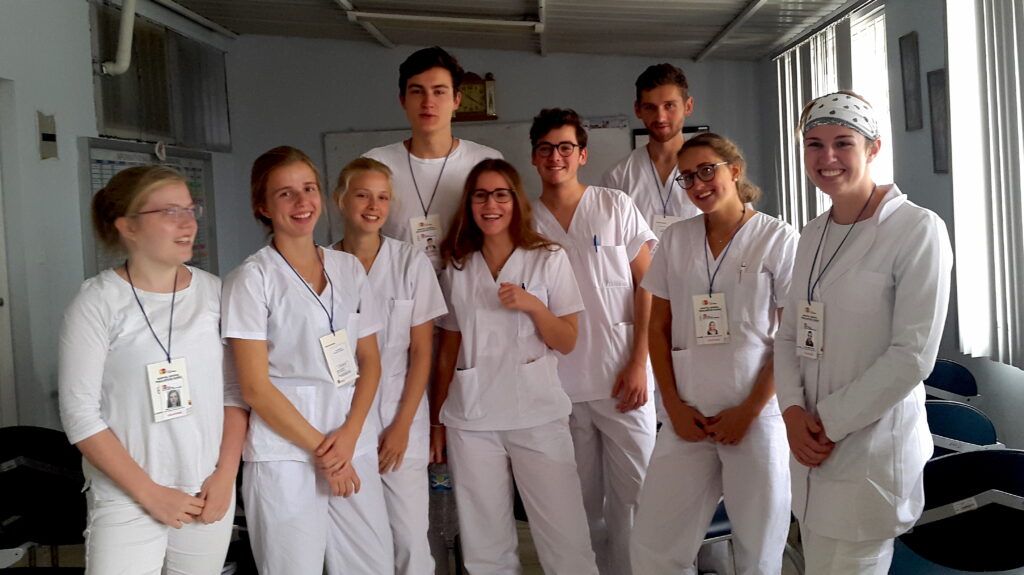
Orientation and Program Briefing
Once you have settled into your accommodation, your volunteer program will likely provide an orientation session and program briefing. This session is crucial for familiarizing yourself with the program’s goals, expectations, and guidelines. Here’s what you can expect during the orientation:
- Introduction to the Organization: You’ll learn about the organization you’ll be volunteering with, its mission, and the projects you’ll be involved in.
- Program Schedule: The orientation will provide a schedule outlining your daily activities, work hours, and any specific requirements.
- Health and Safety Guidelines: The organization will brief you on important health and safety practices to ensure your well-being during your volunteering experience.
- Cultural Sensitivity and Etiquette: Since you’ll be working in a different cultural setting, the orientation will give you insights into local customs and etiquette to help you navigate daily interactions effectively.
Remember to ask questions during the orientation session and make the most of this opportunity to get acquainted with your program and fellow volunteers.
“Arriving in a new country can be exciting and overwhelming at the same time. Take a deep breath, embrace the adventure, and get ready to make a positive impact as a volunteer in Quito!”
Daily Life as a Volunteer
When you volunteer abroad in Ecuador, you’re not only contributing to a meaningful cause but also immersing yourself in a new culture and way of life. The daily life as a volunteer in Quito will be a unique and enriching experience that you’ll cherish for years to come. Here’s what you can expect:
Work Schedule and Responsibilities
As a volunteer, you’ll have a structured work schedule that will vary depending on the project you choose. You could be teaching children in a school, working in a healthcare clinic, or assisting with environmental conservation efforts. The typical work week is Monday to Friday, and you’ll generally have weekends off to explore the city and surrounding areas.
Your responsibilities as a volunteer will depend on the specific project you’re involved in. You may be teaching English, assisting with medical procedures, planting trees, or organizing community development activities. Whatever your role, your contribution will make a positive impact on the local community.
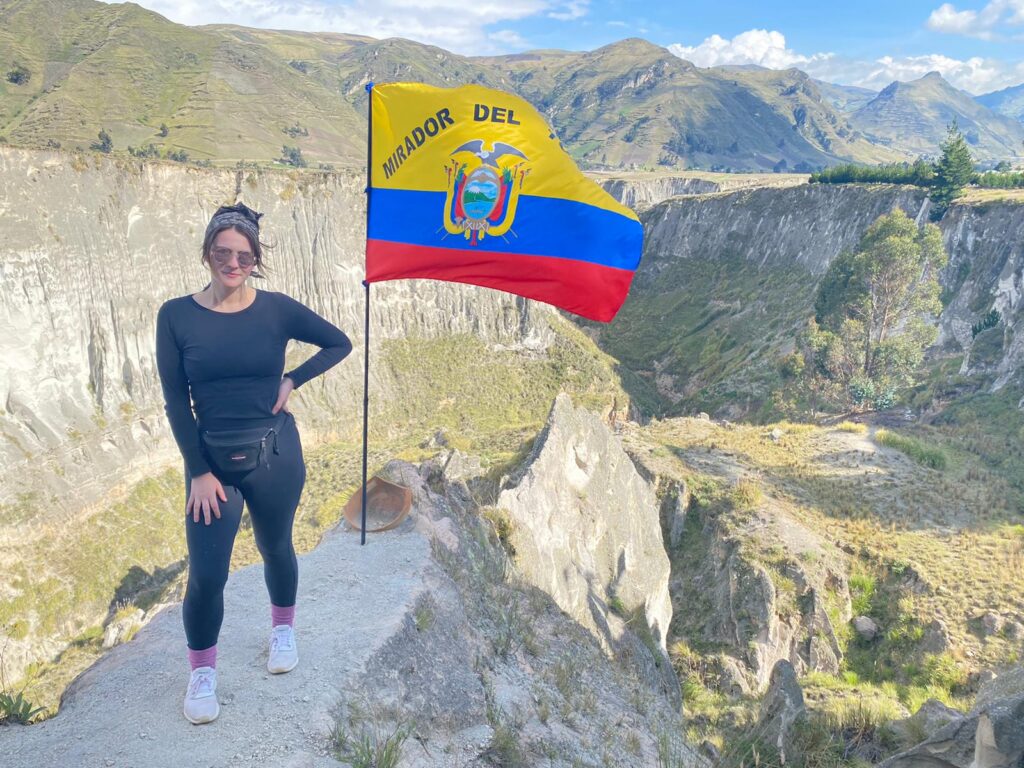
Cultural Etiquette and Respect
One of the most important aspects of daily life as a volunteer is respecting and embracing the local culture. Ecuador is known for its rich cultural heritage, and the people of Quito are friendly and welcoming. Here are some cultural etiquette tips to keep in mind:
- Greeting: When meeting someone new, it’s customary to greet them with a handshake and make eye contact.
- Respect personal space: Ecuadorians value personal space, so be mindful of this during interactions.
- Food and dining: Ecuadorian cuisine is diverse and delicious. When dining with locals, it’s polite to try a bit of everything and express your appreciation for the food.
- Dress modestly: Quito is a conservative city, so it’s important to respect local customs by dressing modestly, especially when visiting religious sites or schools.
By showing respect and understanding for the local customs, you’ll have a more immersive and rewarding experience as a volunteer.
Safety Guidelines
Safety is a priority when volunteering abroad. While Quito is generally a safe city, it’s essential to take precautions to ensure your well-being. Here are some safety guidelines to follow:
- Stay aware of your surroundings: Be mindful of your surroundings and avoid walking alone at night in unfamiliar areas.
- Use reputable transportation: Stick to licensed taxis or arrange transportation through your volunteer program. Avoid using unofficial taxis or hitchhiking.
- Keep your valuables secure: Use a money belt or a secure bag to keep your belongings safe. Avoid displaying expensive items in public.
It’s always a good idea to familiarize yourself with emergency contact numbers and carry a copy of your identification and important documents with you.
By following these safety guidelines, you can enjoy your daily life as a volunteer without any unnecessary worries.
“Remember, volunteering is not just about the work you do, but also about the connections you make and the personal growth you experience along the way. Embrace every moment, immerse yourself in the culture, and make a difference in the lives of others.”
Exploring Quito and Surroundings
Once you’ve settled into your volunteer program and gotten a feel for life in Quito, it’s time to explore the vibrant city and its beautiful surroundings. Ecuador’s capital city has a rich history, stunning architecture, and breathtaking landscapes that are waiting to be discovered. Here are some tips on how to make the most of your time exploring Quito and its surroundings:
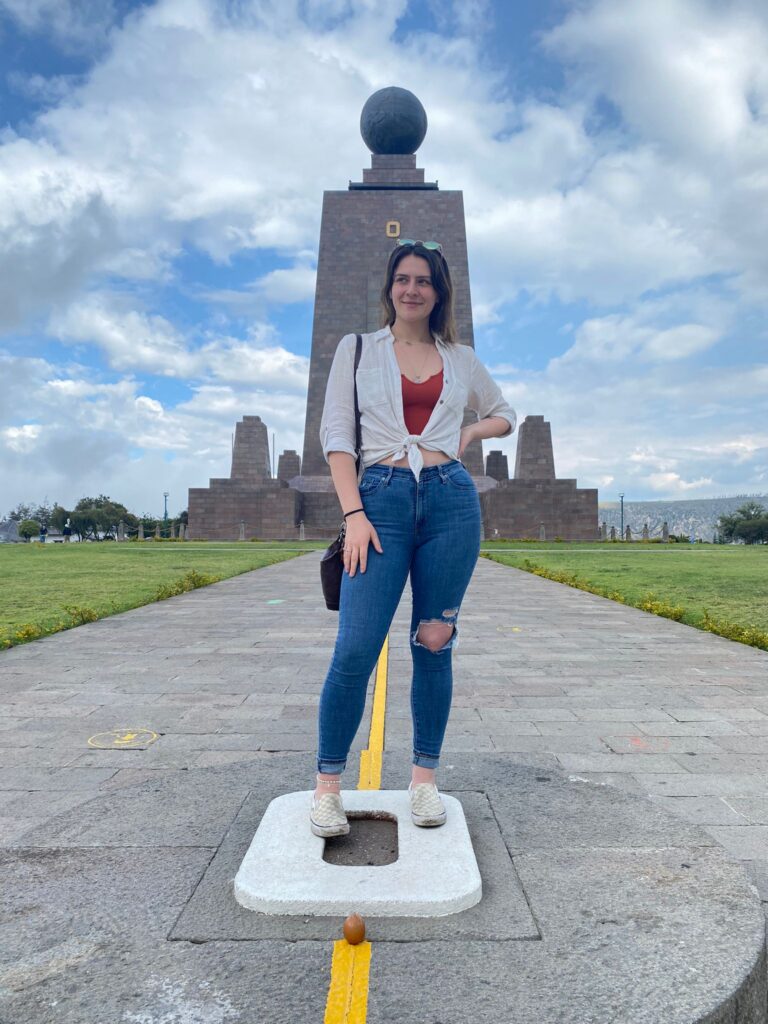
Top Tourist Attractions
- Historic Center: Begin your exploration by visiting Quito’s Historic Center, which is a UNESCO World Heritage site. Explore the narrow, cobblestone streets, admire the colonial architecture, and visit the iconic Independence Square.
- Teleférico: Take a ride on the Teleférico, a cable car that takes you to the top of the Pichincha Volcano. From there, you’ll have panoramic views of Quito and the surrounding mountains.
- Mitad del Mundo: Visit the Mitad del Mundo, the monument marking the Equator line. Stand in both the Northern and Southern Hemisphere at the same time and learn about the scientific and cultural significance of the Equator.
- La Ronda: Spend an evening strolling along La Ronda, a charming street filled with art galleries, cafes, and live music. Enjoy the bohemian atmosphere and discover the local arts and crafts.
Local Cuisine and Dining
When it comes to food, Quito offers a culinary experience that will delight your taste buds. Don’t miss the opportunity to try these traditional Ecuadorian dishes:
- Ceviche: Fresh seafood marinated in lime juice, onions, and cilantro. It’s a refreshing and tangy dish that is perfect for warm days.
- Locro de Papa: A hearty potato soup made with cheese, avocado, and spices. It’s comfort food at its best.
- Llapingachos: These delicious potato pancakes are typically served with cheese, avocado, chorizo, and a peanut sauce. They are a must-try for potato lovers.
- Empanadas: These savory pastries are filled with cheese, meat, or vegetables. They make for a tasty snack or a quick meal on the go.
Weekend Getaways
Quito’s location offers easy access to stunning natural landscapes and charming towns. Consider taking a weekend trip to:
- Otavalo: Visit the famous Otavalo Market, where you can browse through colorful textiles, handcrafted jewelry, and traditional handicrafts. Don’t forget to try some delicious empanadas and fresh fruit.
- Mindo: Explore the cloud forest in Mindo, which is known for its incredible biodiversity. Go birdwatching, hike to waterfalls, and try the famous chocolate made from locally grown cocoa beans.
- Quilotoa: Discover the beauty of the Quilotoa Crater Lake, located in the Andes Mountains. Take a hike around the rim of the crater and marvel at the turquoise-colored water below.
- Baños: Known as the adventure capital of Ecuador, Baños offers a variety of outdoor activities such as white-water rafting, canyoning, and hiking. Don’t miss a visit to the famous Swing at the End of the World.
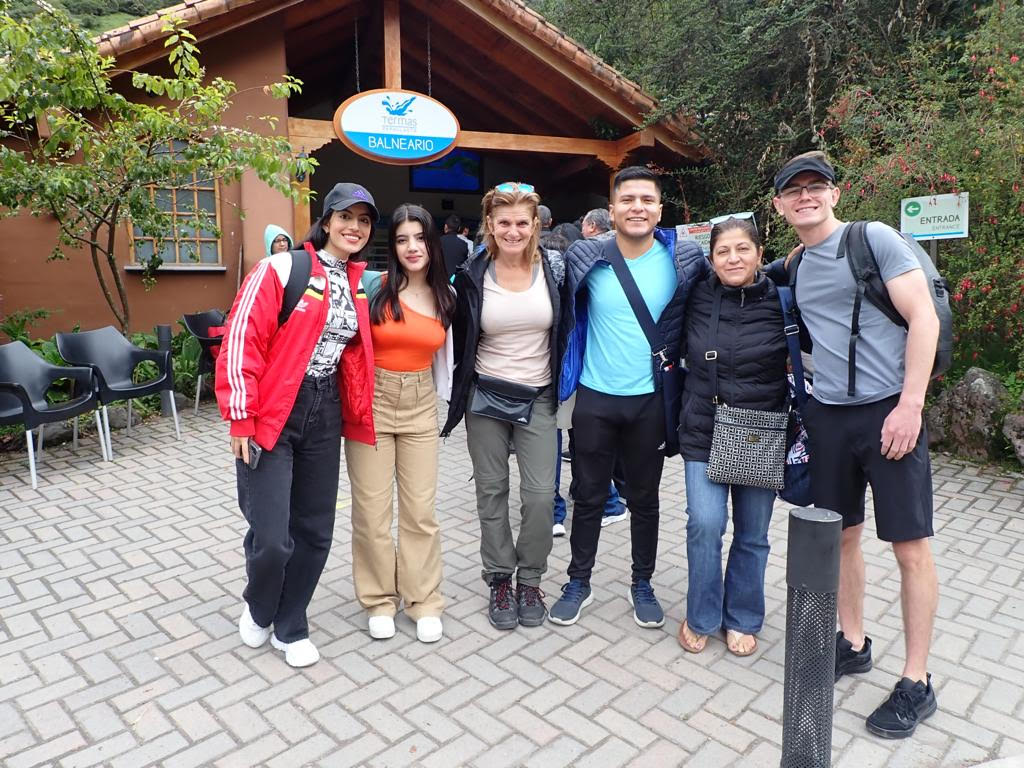
Exploring Quito and its surroundings will give you a deeper understanding of the country’s culture, history, and natural beauty. Make sure to plan your trips ahead of time and take advantage of the weekends to make the most of your volunteer experience. Don’t forget to bring your camera to capture the unforgettable moments you’ll have during your adventures in Ecuador!
Making a Difference and Personal Growth
Volunteering abroad in Ecuador, particularly in Quito, offers you a unique opportunity to make a real difference in the lives of others while also experiencing personal growth. Here, we will explore how volunteering can have a profound impact on both the communities you serve and your own personal development.
Impact of Volunteer Work
When you volunteer abroad in Quito, you become part of a collective effort to address important social, economic, and environmental challenges in the local community. Your contributions can have a lasting impact on the lives of the people you work with and the projects you support. Whether you’re teaching English to disadvantaged children, providing healthcare services to underserved communities, or participating in environmental conservation initiatives, your actions can bring about meaningful change.
Building Relationships and Connections
One of the most rewarding aspects of volunteering abroad is the opportunity to build meaningful relationships and connections with people from diverse backgrounds. As you work closely with local communities, you have the chance to form deep connections and gain a deeper understanding of their lives, ambitions, and challenges. These relationships can have a profound impact on both the individuals you serve and yourself. You’ll forge lasting bonds and create memories that will stay with you long after your volunteer experience ends.
Self-Reflection and Learning
Volunteering abroad provides a unique environment for self-reflection and personal growth. As you step out of your comfort zone and immerse yourself in a new culture, you’ll gain a new perspective on life, challenge your assumptions, and develop a greater appreciation for the world around you. You’ll have the opportunity to learn about different ways of life, traditions, and values that may be vastly different from your own. This expanded worldview can foster personal growth, empathy, and a greater sense of global citizenship.
“The best way to find yourself is to lose yourself in the service of others.” – Mahatma Gandhi
Through volunteering, you’ll discover new strengths and talents, develop skills such as adaptability and problem-solving, and gain a sense of accomplishment and fulfillment. These personal transformations can have a lasting impact on your future endeavors and help shape your perspective on the world.
By engaging in volunteer work abroad in Quito, you not only make a positive impact on the lives of others but also embark on a journey of personal growth and self-discovery. Your time as a volunteer will leave an indelible mark on your life and the lives of those you serve, creating memories and insights that will shape your worldview for years to come.
So, if you’re looking for an opportunity to make a difference while experiencing personal growth and cultural immersion, consider volunteering abroad in Quito, Ecuador. Your efforts will not only change lives but also transform your own.
Support and Assistance
When embarking on a volunteer experience abroad, it’s important to know that you’ll have support and assistance available to you throughout your journey. This ensures that you feel safe, secure, and well taken care of during your time in Quito, Ecuador.
On-site Coordinator and Staff
One of the key sources of support you can expect during your volunteer abroad experience in Quito is the on-site coordinator and staff. These individuals are there to guide you, answer your questions, and help you make the most of your time in Ecuador. They are knowledgeable about the local culture and customs, and can provide valuable insights and advice.
The on-site coordinator will be your go-to person for any concerns or issues that may arise. They will assist you in getting settled in your accommodation, provide you with a program briefing, and ensure that you understand your responsibilities as a volunteer. Throughout your stay, they will be available to provide guidance and support whenever needed.
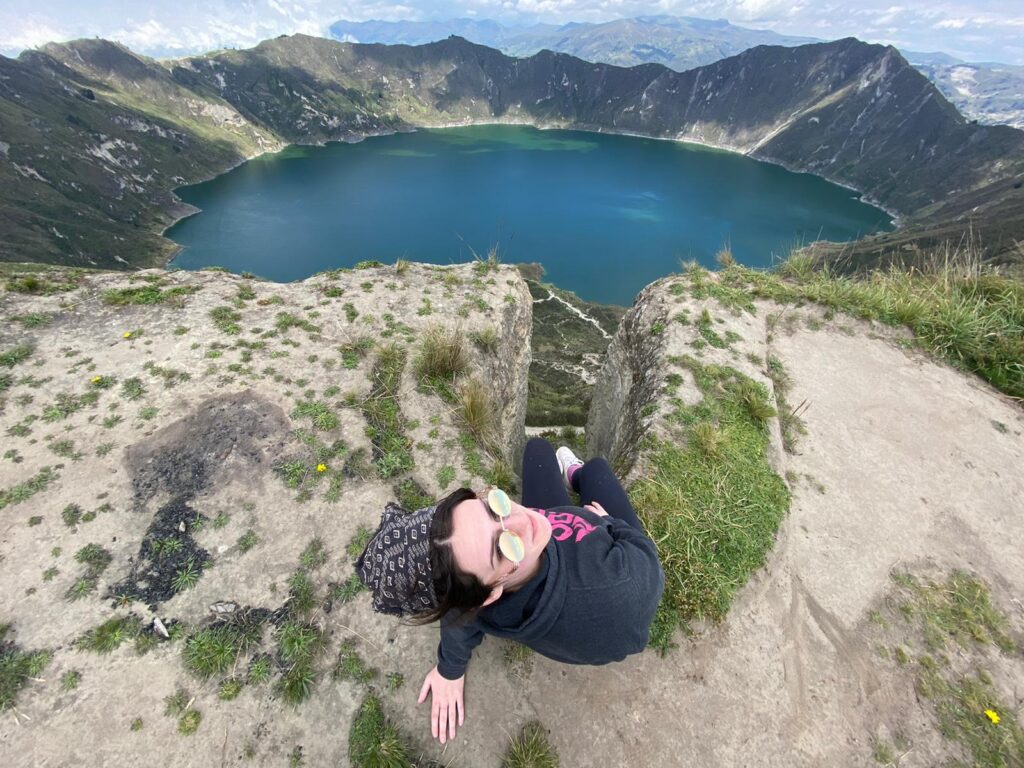
Emergency Contacts
In case of any emergencies or urgent situations, it’s crucial to have access to reliable emergency contacts. Before your trip, make sure you have a list of emergency contact numbers saved in your phone or written down somewhere accessible. These contacts may include:
- Local police and emergency services
- Hospital or medical facilities
- Embassy or consulate of your home country
Having these numbers readily available will give you peace of mind knowing that you can reach out for assistance if needed.
24/7 Support
Another important aspect of support and assistance during your volunteer abroad experience is having access to 24/7 support. Many reputable volunteer organizations, such as Abroaderview, provide round-the-clock support to ensure that volunteers have someone to reach out to at any time.
Whether you have questions, concerns, or need assistance with anything, knowing that there is always someone available to assist you can make a big difference. This support can range from logistical help, such as arranging transportation or addressing accommodation issues, to emotional support and advice.
Remember, you are not alone during your volunteer experience in Quito. There is a network of people dedicated to your safety, well-being, and ensuring that you have a positive and impactful experience.
Knowing that there is someone you can turn to for support and assistance can make all the difference during your volunteer abroad experience.
Conclusion
In conclusion, volunteering abroad in Ecuador, specifically in the vibrant city of Quito, can be a life-changing experience filled with personal growth, cultural immersion, and making a positive impact on the local community. By understanding the geographical and cultural aspects of Ecuador, as well as prioritizing safety and security, you can ensure a smooth and rewarding volunteer journey.
By choosing a volunteer program that aligns with your interests and skills, conducting thorough research, and obtaining the necessary travel documents and vaccinations, you can adequately prepare for your volunteer experience in Quito. Upon arrival, take advantage of the airport transfer services and explore various accommodation options that suit your preferences and budget.
During your volunteer work, embrace the work schedule and responsibilities, while also being mindful of cultural etiquette and respect. Follow safety guidelines to ensure your well-being and make the most of your time as a volunteer abroad. Engage with the local community, immerse yourself in their traditions, and try the delicious local cuisine to truly experience the richness of Ecuadorian culture.
Don’t forget to take the time to explore Quito and its surroundings. Visit the top tourist attractions, indulge in the local cuisine, and take advantage of the weekends to explore nearby destinations. This will not only allow you to relax and unwind but also provide a well-rounded experience of the country.
Most importantly, remember that your volunteer work has the potential to make a significant difference in the lives of others. Whether you’re contributing to education, healthcare, environmental conservation, or community development, your impact will be felt by the local community. Building relationships and connections, both with fellow volunteers and locals, will further enhance the meaningfulness of your experience. Allow your time as a volunteer to promote self-reflection and learning, as you gain a deeper understanding of global issues and your own personal growth.
Throughout your journey, you will have the support and assistance of an on-site coordinator and staff, as well as emergency contacts and 24/7 support. This ensures that you have the necessary resources and assistance whenever you need it.
In summary, volunteering abroad in Quito, Ecuador offers a unique opportunity to contribute to meaningful projects, immerse yourself in a rich culture, and make lasting connections. By taking the necessary steps to prepare for your volunteer experience and embracing the daily life as a volunteer, you can have a fulfilling and impactful journey. So, pack your bags, open your heart, and embark on a volunteering adventure that will not only change the lives of others but also transform your own.
Frequently Asked Questions
- What kind of volunteer programs are available in Ecuador, Quito?There are various volunteer programs available in Ecuador, Quito. Some popular options include teaching English, working in childcare centers, conservation and animal rescue projects, healthcare initiatives, community development projects, and environmental sustainability programs.
- What are the requirements to volunteer abroad in Ecuador, Quito?The specific requirements may vary depending on the organization or program you choose. Generally, volunteers in Ecuador, Quito must be at least 18 years old (some programs may have a higher age requirement), have a valid passport, and possess the necessary qualifications or skills required for the chosen project.
- How do I apply for a volunteer program in Ecuador, Quito?To apply for a volunteer program in Ecuador, Quito, you can visit the website of the organization you wish to volunteer with, such as www.abroaderview.org. They will usually have an online application form where you can provide your personal details, preferred program, and any relevant experience or qualifications. Once your application is submitted, you may need to pay a program fee and go through a selection process.
- Is accommodation provided for volunteers in Ecuador, Quito?Yes, most volunteer programs in Ecuador, Quito provide accommodation for volunteers. This can include homestays, volunteer houses, or shared accommodations with other volunteers. The accommodation arrangements may vary depending on the organization and program.
- What support and assistance will I receive as a volunteer in Ecuador, Quito?As a volunteer in Ecuador, Quito, you can expect to receive support and assistance from the organization you are volunteering with. This may include pre-departure guidance, airport pickup, orientation, local staff support, training, and guidance throughout your volunteering duration. The organization will usually be available to answer any questions or concerns you may have during your volunteer experience.

